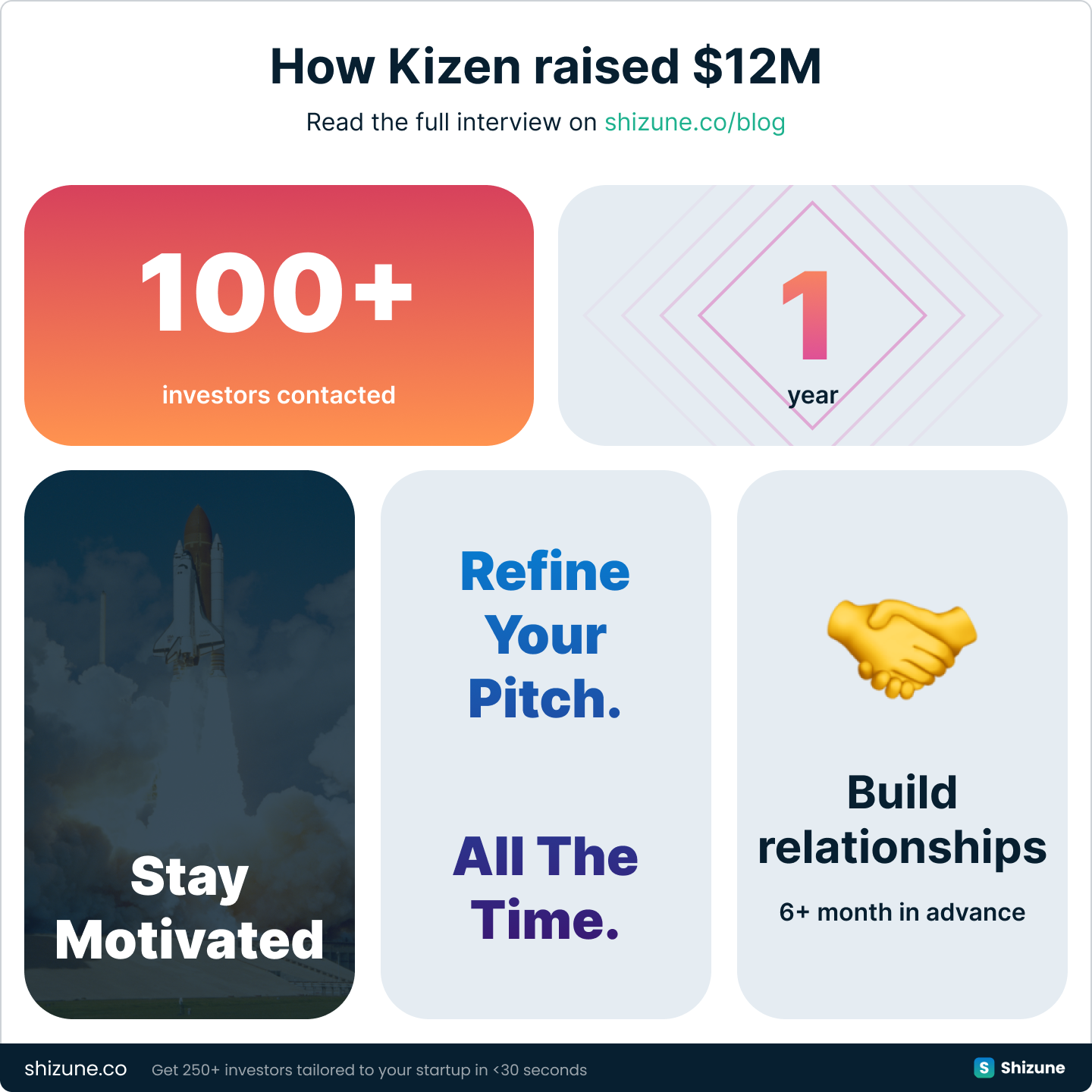John Winner, the founder and CEO of Kizen, shares his secrets on raising a $12M seed round.
We’ve all seen these large seed rounds and thought: “How founders managed to raise so much money this early?”. Well, the short answer is: lots of hard work.
John Winner not only raised a whopping $12M seed round for his startup but also was kind enough to pull back the curtains on his fundraise.
John is building Kizen, the first no-code, enterprise-grade CRM & operations platform. If you need a 10x faster CRM at 10% the cost — give Kizen a try.
Round details
- Company name: Kizen
- Round size: $12,000,000
- Stage: Seed
- Date: September 2022

How long did it take you to raise the round?
Over a year.
How many investors did you talk to?
Over 100.
What tools did you use?
I used Kizen, my cell phone, email and networking.
What was the hardest thing in your fundraising?
When you’re first beginning to fundraise and a highly respected person or group in the community doesn’t like your idea, that can be a hard moment as a founder. It was certainly a hard moment for me. It seems every successful venture has a long list of people that didn’t believe in them or the idea. That is what makes startups so interesting and exciting. The most challenging portion of fundraising is the number of conversations you have to have and that not everyone believes in your idea. But if you have enough conversations and a good enough idea, you will find enough people who do.
Fundraising advice/hacks for founders?
Tip 1: Deeply understand your financial metrics and the path to your next round of funding. This is really important because it is the language that investors speak. I don’t think any founder speaks that language until they start fundraising.
Tip 2: Build relationships. People don’t usually fund your idea the first time they meet you. People fund people they have relationships with because they are trusting you with their money. Seek to build relationships six to twelve months in advance of when you begin fundraising.
Tip 3: Understand what stage a potential investor invests in. Sometimes you might talk to someone who really likes your idea, but your business is not at the stage where they or their fund engage.
Tip 4: Embrace No and listen closely to why smart people are saying no. This will help you refine your business model and pitch. It also helps you understand why this might not be a fit right now, but a potential fit in the future for that investor.
Tip 5: Always maintain your passion and motivation for your idea. Have an idea you are truly committed to. If you believe the world needs it and there is a business to be built around it, don’t let anyone stop you.
Support
Thanks for reading!
Follow John on LinkedIn and Twitter. Also, if you’re looking for a lightning-fast and affordable CRM, you’re going to love Kizen.
If you enjoyed this interview, join the email list, I post two new interviews every week.
P.S: John contacted over 100+ investors. Shizune can find 250+ investors in your industry and stage in <30 seconds automatically.

Get 250+ investors tailored to your startup. Automatically.
Angels and VC funds that invest in your industry, stage, and geography. Trusted by 3,000+ startups.
P.S.2: Have questions for John or me? Join the discussion:
Have you ever wondered, how founders raise LARGE seed rounds? By large I mean $12M large.
— Pavel Gvay (@PavelGvay) November 3, 2022
John Winner from Kizen was kind enough to tell me his story.
👇Check out the interview for tips & tricks on raising your seed: pic.twitter.com/uziLPFRBd2






Comments ()